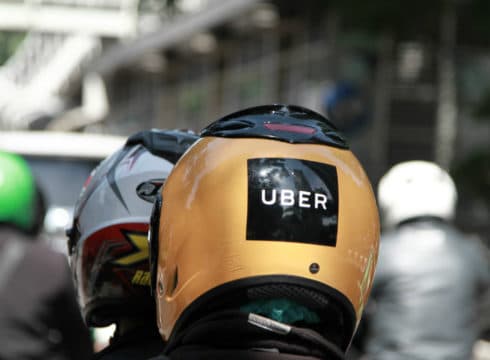• In March 2016, after the launch of bike taxis in Bengaluru, the police seized Uber bikes citing lack of regulatory measures
• Goa, Haryana, Mizoram, and West Bengal have made provisions for bike taxis in their states
• Amid reports over the state transport dept considering to allow bike taxis in Bengaluru, Uber has already submitted its application seeking approval
Inc42 Daily Brief
Stay Ahead With Daily News & Analysis on India’s Tech & Startup Economy
After Goa, Haryana, Mizoram, and West Bengal, Karnataka may be the next state to legally allow on-demand bike taxis services in the state. The Karnataka transport department, after receiving instructions from the state government, has started looking at representations from various stakeholders over reintroducing the service, according to reports.
B Basavaraju, principal secretary, transport department, stated, “We are studying the pros and cons of on-demand bike taxis, which is different from the rent-a-bike concept. The department is aware that bike taxis are already available in some states. I have directed the officials to talk to different stakeholders.”
Some of the significant on-demand bike taxi operators in India are UberMoto, OlaBike, Baxi, Bikxie, and Rapido.
Bike taxis are not new to Bengalureans. Uber and a couple of other aggregators have introduced bike taxis in the city in the past as well. However, within a few days of the launch, the state government, on March 5, 2016, had declared bike taxis illegal. In fact, the city police had seized 80 Uber bike taxis by 12 March 2016.
Since India’s Motor Vehicle Act doesn’t have a provision for two-wheelers to be used as taxis, some state governments such as Goa, Mizoram, and West Bengal have made their own provisions to allow bike taxis to play their states.
Even as the Karnataka state government has green signalled the reintroduction of bike taxis, and the transport department is currently mulling the possibility, Uber has already submitted its application for bike taxi approval to extend its ‘efficient last-mile services’ to its customers.
While safety and security have been the major issues in the implementation of bike taxis, particularly in the Indian context, that’s not the only issue. India’s vehicle fleet is growing rapidly. In 1991, there were 20 Mn vehicles in India; in 2011, the number had skyrocketed to 140 Mn, and by 2030, it is expected to reach a staggering 400 Mn vehicles.
Fuel consumption by two-wheelers is 18% of the overall energy consumption ( in 2010) in the road transport sector, second only to trucks. The trend follows in pollution as well.
However, with Ather Energy and two-wheeler manufacturers set to manufacture ebikes, the scenario can be reversed. Globally, the market for bike taxis is over $500 Bn, and allowing them could be a win-win situation for all the stakeholders, but only if the safety and security of the riders is fully taken into the account.
[The development was reported by ET]
{{#name}}{{name}}{{/name}}{{^name}}-{{/name}}
{{#description}}{{description}}...{{/description}}{{^description}}-{{/description}}
Note: We at Inc42 take our ethics very seriously. More information about it can be found here.


